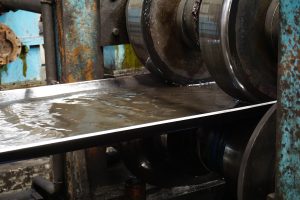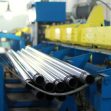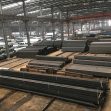high-quality development of the steel industry with standardization
The steel industry plays a vital role in global economic development, providing the backbone for infrastructure, manufacturing, and innovation. To ensure sustainable growth and competitiveness of welded steel pipe, the industry must embrace high-quality development with a strong focus on standardization. This article explores the significance of standardization in driving the steel industry towards a prosperous and sustainable future.

Enhancing Product Quality and Safety
Standardization in the steel industry is crucial for enhancing product quality and safety. By establishing uniform technical specifications, standards ensure that steel products meet the required performance criteria, enabling reliable and consistent performance. Standardized processes and testing methods help identify and mitigate quality issues, leading to enhanced safety for end-users. Furthermore, adherence to international standards facilitates global trade, promoting the reputation of steel pipe manufacturers and their products.
Facilitating Technological Advancements and Innovation
Standardization acts as a catalyst for technological advancements and innovation within the steel industry. By establishing common terminology, measurement standards, and testing protocols, standardization enables seamless collaboration and knowledge sharing among industry stakeholders. This fosters the development of new manufacturing techniques, improved materials, and sustainable practices. Standardization also facilitates the adoption of emerging technologies, such as automation, digitalization, and smart manufacturing of round steel pipe, enabling the steel industry to remain competitive in the global market.
Promoting Environmental Sustainability
Standardization plays a pivotal role in promoting environmental sustainability within the steel industry. By defining environmental performance requirements and benchmarks, standards help reduce the industry’s ecological footprint. This includes guidelines for energy efficiency, emissions control, waste management, and resource conservation. Standardization also encourages the adoption of sustainable practices throughout the steel production lifecycle, from raw material sourcing to end-of-life recycling. By aligning with international environmental standards, the steel industry can enhance its reputation as a responsible and environmentally conscious sector.
Ensuring Global Competitiveness
Standardization ensures global competitiveness for steel manufacturers by harmonizing technical specifications and eliminating trade barriers. Compliance with international standards enhances market access, fosters trust among customers, and facilitates smooth supply chain operations. By adhering to recognized standards, steel companies can demonstrate their commitment to quality, safety, and environmental stewardship. This builds confidence in their products such as rectangular steel tube, increases customer satisfaction, and strengthens their competitive position in both domestic and international markets.
Standardization serves as a cornerstone for the high-quality development of the steel industry. From enhancing product quality and safety to driving technological advancements and promoting environmental sustainability, standardization provides a framework for growth, innovation, and global competitiveness. Embracing and implementing standardized practices will pave the way for a prosperous and sustainable future for the steel industry.
Tel: +86 18202256900 Email: steel@tjdpbd.com









